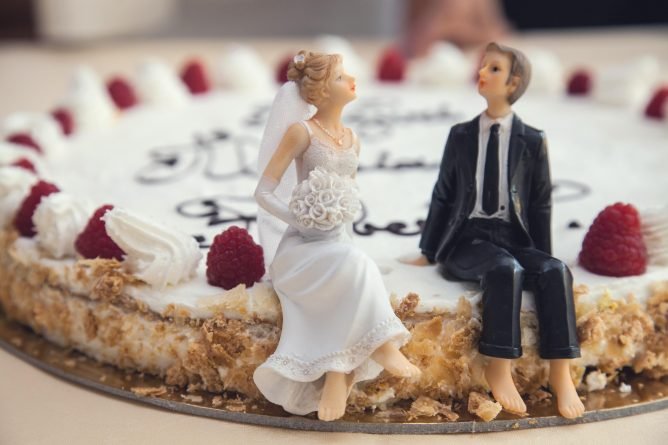The boom of humanist weddings – Part 2

Not religious but profound
Imagine walking down on your wedding gown to the sound of your favourite childhood music. Imagine wearing a blue dress and walking up to the edge of the Cliffs of Moher. Imagine saying your vows to your partner by the seaside, that kind of vows that make us feel warm and cheesy, while the background plays ‘Here comes the Sun’. Imagine having whatever you ever wished for without any restrictions.
You could have it.
Wedding ceremonies are turning out to be more personalised. While the Catholic ceremonies start with the Ave María, Humanist weddings allow for anything and everything, as long as the couple wants it.
Teddy Prout, Director of Community Services, Humanists UK, explains that humanists do not congregate often, neither take part in worship, “which means the opportunities to declare openly one’s beliefs in a ritualized setting are few. A humanist wedding is one such occasion. They exist for the same reason as religious weddings, to celebrate the couple according to the beliefs” they share.
Unlike civil and religious ceremonies humanist weddings have not set scripts and are bespoke.
When comparing Humanist weddings to Church ceremonies, Gordon Linney says, “I find humanist weddings lacking the dignity and solemnity one finds in the centuries-old traditions and customs of a church wedding”.
Humanism is for those who want to celebrate their marriage but wish to distance themselves from traditional religious rites.
It serves people who profess different religions or none in particular.
Brogen Hayes, 38, will celebrate a humanist wedding. She thinks they are popular because the “Irish society has become very secular over recent years. As human beings, we crave ceremony, but we have realised we don’t need to conform to a religion to have this.” Even though she is not a registered humanist, she chose to have a humanist ceremony because “the fact that the ceremony can be tailored to the people getting married feels right to me.”
Humanism itself lacks religious feelings, but in no way clashes with religion. The HAI offers weddings to those who identified themselves as humanists and also to couples of different faiths that look for an alternative.
They can be carried out in an outdoor location, as long as it is legally approved. The place must be open to the public and must have an identifiable postal address. That means you could not have your wedding at your parent’s yard, but you could at the National Gallery of Ireland in their beautifully restored Georgian house or, if you are a GAA fan, overlooking the Croke Park.
…
“Till death do us part”
A humanist wedding gives the opportunity to have a ceremony anywhere at any time, without a pre-written speech, and gives the flexibility to make it unique.
However, people choosing this option are aware of the possible outcomes and have a realistic approach to the future. The bride-to-be, Brogen Hayes comments on divorce, “I am in favour of divorce, even though I never want to be divorced! I don’t believe that people should be trapped in a marriage they are not happy in.” To the same question, Celebrant Walls express, “I am a realist and divorce is part of life. It may not be the easiest thing for people to go through but is absolutely essential in the real world for those who need it.”
“Till death do us part” is an ideal. It means couples will be parted only by death and does not leave room for Divorce. However, it is a vow that was initially established centuries ago when life expectancy was shorter, and people seldom had to worry about not breaking promises.
Some agree that, “till death do us part” went from being a romantic wish to life sentence imprisonment.
…
“Humanism has at its core the freedom of expression that everyone should have by right.”

LGBT
Unlike most mainstream churches, humanists welcome and support same-sex marriages.
Article 41-4 of the Irish Constitution states that “marriage may be contracted in accordance with law by two persons without distinction as to their sex.”
Mr. Prout explains, a wedding “is one of those markers in life that stand out as being special, meaningful, and profound” and should not be exclusive to a group. “Humanism has at its core the freedom of expression that everyone should have by right.”
However, the concept of marriage based on equality would have been unimaginable to our ancestors. Before married couples were expected to live as a group with siblings and parents, married women did not get the right to hold their earnings and the man would always be the provider. Marriage as a relationship of equals, intending to fulfil both parties, has only been the norm for the past two generations. And, the constitutional amendment as to who should have the right to marry in the eyes of the State, got just in 2015.
Humanist weddings have special importance for the LGBT community. “Same-sex marriage was not legally recognised until very recently; and few, if any religious communities would offer a ceremony (legal or not) to recognise the relationship,” says Mr. Prout.
In the same sense, he explains, being able to openly express love for one another, matters to everyone; “with the LGBT community, the opportunities to do so have been considerably restricted, but the ceremony (or more accurately the celebrants) has/have always been welcoming of LGBT and have been proud to lead their special day.”
Many religions do not accept the marriage of couples of the same sex, and humanists offer this opportunity and equality to those who wish to celebrate their commitment publicly.
Humanism celebrates diversity and these weddings have increased dramatically in popularity in the last years.
If this is the path you want to take, I would urge to check www.humanism.ie and contact a celebrant.
Read Part 1 of this topic, here!